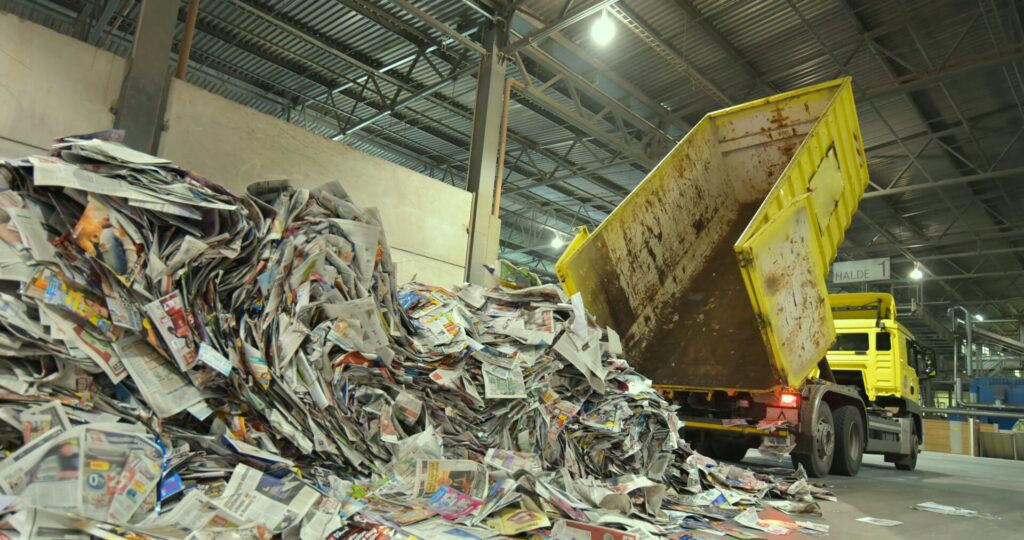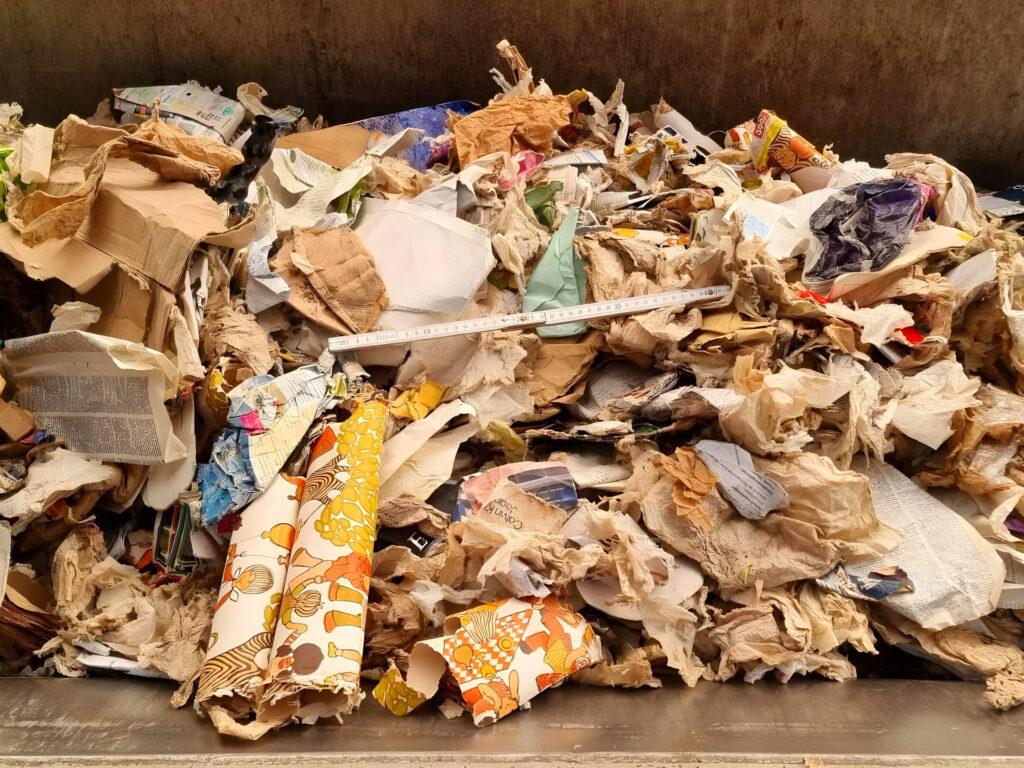Paper recycling centers are facilities that are designed to collect, process, and recycle waste paper.
These facilities are usually equipped with large machines and equipment such as conveyor belts, grinders, pulpers, centrifuges, and screens, to handle the large amount of waste paper they receive. The recycling centers are also equipped with pollution control systems to minimize the environmental impact of the recycling process.
Paper recycling machine
A paper recycling machine comes in multiple forms: a small type that recycles 20 – 100 kg of paper per hour. The medium-sized machine recycles 75 – 250 kg of paper, while the large machine recycles 100 – 500 kg of paper waste. Depending on the budget and requirements, a suitable machine can be purchased































